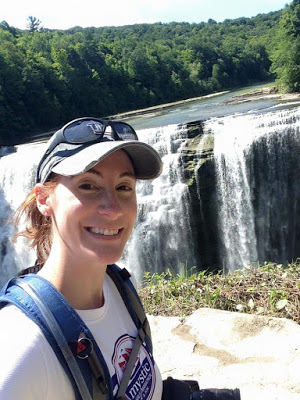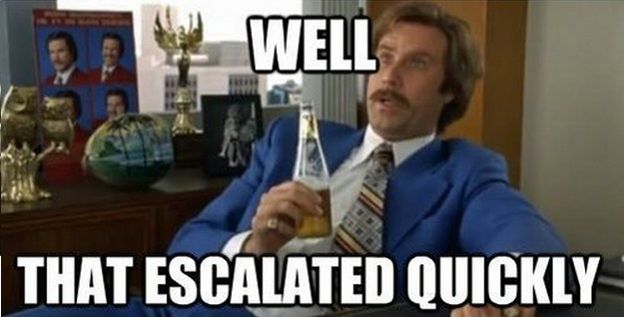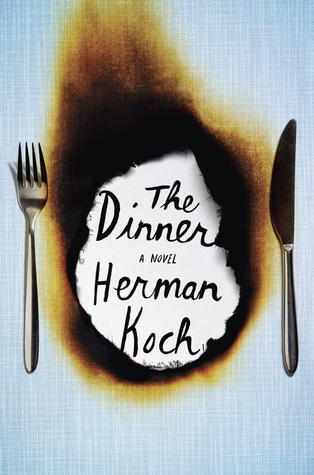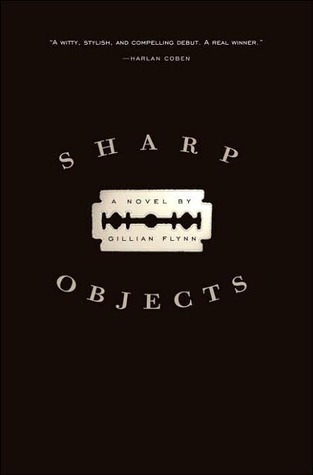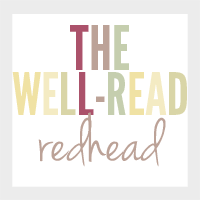Title: The Dinner
Author: Herman Koch
Publisher: Hogarth
Publication Date: February 12, 2013 (English edition)
Source: personal purchase
Plot Summary from Goodreads:
It's a summer's evening in Amsterdam, and two couples meet at a fashionable restaurant for dinner. Between mouthfuls of food and over the polite scrapings of cutlery, the conversation remains a gentle hum of polite discourse -- the banality of work, the triviality of the holidays. But behind the empty words, terrible things need to be said, and with every forced smile and every new course, the knives are being sharpened.
Each couple has a fifteen-year-old son. The two boys are united by their accountability for a single horrific act; an act that has triggered a police investigation and shattered the comfortable, insulated worlds of their families. As the dinner reaches its culinary climax, the conversation finally touches on their children. As civility and friendship disintegrate, each couple show just how far they are prepared to go to protect those they love.
Tautly written, incredibly gripping, and told by an unforgettable narrator,
The Dinner
promises to be the topic of countless dinner party debates. Skewering everything from parenting values to pretentious menus to political convictions, this novel reveals the dark side of genteel society and asks what each of us would do in the face of unimaginable tragedy.
My Review:
If I had to name the book that was recommended to me the most times in the last year, it would be
The Dinner. I think I have the Wall Street Journal to thank for that, since it billed the novel as "the European
Gone Girl" several months back. (Must I remind you for the eleventy billionth time
how I feel about Gone Girl?)
Okay, I knew I had to give this one a try. I put it on my
30 Before 35 list to make sure it happened relatively soon, and here we are.
First of all, even though the two novels are vastly different in subject, I can see why the WSJ made the comparison with Gillian Flynn's novel. It's more a comparison of themes rather than actual plot points. The most basic way to put it is that there is a complete lack of moral compass in both novels. In
The Dinner, Paul (our protagonist) introduces us to his three fellow diners, as well as the terrible actions of their children that prompted this meeting in a hoity-toity Amsterdam restaurant. These specifics are unveiled very slowly--so slowly, in fact, that after a while I started to get bored. I didn't see where the hook was, the "thing" that was going to make this novel grip me and stick around in my brain for a while, because I felt like I had all the details and could see where they would eventually take me.
However, the catch is that none of the characters are quite as they originally seem. Yes, you get a lot of the details about the 4 diners in the first half of the novel--enough detail to make assumptions about how they will later act. But you're going to assume these things thinking that they are capable of rational action...when in fact, they often are not. Nope, I'd say these four are quite psychologically effed up, for lack of a better phrase (two of them in particular). And that leads to a whole series of events that I didn't see coming.
That's the hook.
By the time I reached the end, I had mixed feelings. I like how Koch took the four diners, introduced them quite slowly and methodically in the beginning, and then suddenly started revealing details that changed my entire perception of them by the end. That's not easy to do, especially in a novel that is relatively short in length--and especially when one of the four characters in question is narrating the story. Character development = A++.
However, the downside for me was that by the end, I felt like the choices made by these characters were almost
too unbelievable. I know a lot of
Gone Girl critics that panned Flynn's novel for that reason, though I disagreed with that assessment in that case. However, in
The Dinner, that was precisely my issue. I understand what Koch was trying to illustrate--the idea that we will go to great (maybe borderline insane) lengths to protect our families--but it was a little too out there for me at times. Not to mention that some of the specifics were a bit far-fetched (ex: there's an important detail that's based around an "amniotic fluid test" for mental disabilities that I'm fairly sure does not exist). I left
Gone Girl feeling like it was a situation that could actually happen--I didn't leave
The Dinner feeling the same way.
My final assessment: as literary fiction,
The Dinner is an intriguing piece of work. The pacing and character development is spot-on, and for that reason I'd say it's definitely worth the read. However, on the "psychological thriller" side of things, it didn't completely grab me. And for this, I blame the Wall Street Journal--because is it
really fair to compare two authors' work so directly?
Have you read
The Dinner?
Do you think it's fair to compare it to
Gone Girl?
And if you haven't read it yet, how do you feel when a novel is closely compared to another well-known one...do you think it creates good hype, or leaves too much room for overly high expectations?













